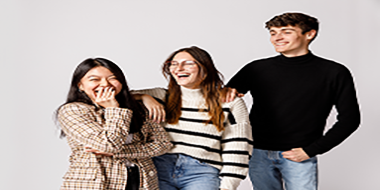-
Study
Study
Interested in studying at Northumbria? With 31,500 students, Northumbria is one of the largest universities in the country, offering courses on either a full-time, part-time or distance learning basis.
Discover more-
Undergraduate
- Undergraduate Study Degree
- Undergraduate Open Day & Events
- Application Guides
- Northumbria University UCAS Exhibitions
- Foundation Years
- Undergraduate Fees & Funding
- School & College Outreach
- Continuing Professional Development
-
Postgraduate
- Postgraduate Study Degree
- Postgraduate Research Degrees
- Postgraduate Open Days and Events
- Postgraduate Fees & Funding
- Flexible Learning
- Thinking about a Masters?
- Continuing Professional Development
- Change Direction
-
Student Life
- The Hub - Student Blog
- Accommodation
- Life in Newcastle
- Support for Students
- Careers
- Information for Parents
- Students' Union
- Northumbria Sport
-
-
International
International
Northumbria’s global footprint touches every continent across the world, through our global partnerships across 17 institutions in 10 countries, to our 277,000 strong alumni community and 150 recruitment partners – we prepare our students for the challenges of tomorrow. Discover more about how to join Northumbria’s global family or our partnerships.
Discover more-
Applying to Northumbria
- European Union
- Our London Campus
- Northumbria Pathway
- International Events
- Entry Requirements
- Agent Network
-
Northumbria Language Centre
- Faculty Requirements
- Acceptable English Requirements
- Pre-Sessional English and Study Skills
- Academic Language Skills Programmes (ALS)
-
International Fees, Funding & Scholarships
- International Undergraduate Fees
- International Undergraduate Funding
- International Masters Fees
- International Masters Funding
- International Postgraduate Research Fees
- International Postgraduate Research Funding
- International Money Matters
-
Life at Northumbria
- International student support
- The Hub - Student Blog
- Careers
-
International Mobility
- Current Northumbria Students
- Incoming Exchange Students
-
-
Business
Business
The world is changing faster than ever before. The future is there to be won by organisations who find ways to turn today's possibilities into tomorrows competitive edge. In a connected world, collaboration can be the key to success.
Discover more -
Research
Research
Northumbria is a research-rich, business-focused, professional university with a global reputation for academic quality. We conduct ground-breaking research that is responsive to the science & technology, health & well being, economic and social and arts & cultural needs for the communities
Discover more -
About Us
-
About Northumbria
- Our Strategy
- Our Staff
- Our Partners
- Student Profiles
- Alumni Profiles
- Leadership & Governance
- Academic Departments
- University Services
- History of Northumbria
- Contact us
- Online Shop
-
-
Alumni
Alumni
Northumbria University is renowned for the calibre of its business-ready graduates. Our alumni network has over 236,000 graduates based in 178 countries worldwide in a range of sectors, our alumni are making a real impact on the world.
Discover more - Work For Us
What will I learn on this module?
You will learn to tackle sophisticated and stimulating design projects, further developing your skills and abilities as an aspiring professional designer. You will be encouraged to further develop a flexible and imaginative enquiry-based approach to design projects. You will become an active participant, integrating your design practice with distinguishable practical and intellectual skills.
A framework of design competitions and/or live, industry-facing collaborative projects will provide you with the opportunity to refine your specialist skills, professional qualities, enterprise and entrepreneurial capabilities through real-life scenarios – providing an authentic and professional learning experience. A range of projects will be available in order for you to develop you own specialised practice in the design of products, services and experiences.
You will continue to further develop your design communication and visual thinking skills in the production of a creative process journal, capturing a range of design development work produced in the pursuit of your design projects. The ability to think and explore visually in two-dimensions remains a crucial skill for designers and one that is highly sought-after by employers. Visual thinking and design communication facilitates effective discussion, idea generation and feedback.
You will be given the opportunity to engage and deliver in professional design presentations, developing your verbal and visual communication skill of complex design solutions either individually or as part of a creative group to tutors, peers and, when possible, stakeholders. An essential skill to successfully communicate solutions, ideas or concepts at any level.
How will I learn on this module?
The studio and workshop environment is integral to this process, encouraging individual intellectual freedom and a creative collaborative community. Hands-on participation and the exploration of physical and/or digital skills, materials and processes enables you to display evidence of creative thinking through the exploration and communication of a concept/artefact that has a purposeful outcome. Alongside attendance in the studio, you are likely to receive support and guidance through online platforms.
This type of experiential activity engages you in self-initiated research, encouraging independent judgement and critical self-awareness.
Working as an individual and/or in groups, you learn to be flexible and collaborative, to identify and redefine problems in a creative way and focus on solutions that are both relevant and empathetic. Traditional, new and emerging techniques are used both in the delivery and realisation of outcomes, and you will learn to present your work and ideas to a variety of audiences in different situations.
You will produce a visual design process sketchbook as you work, capturing a range of design development work created in the pursuit of your design projects. This may contain, but not be limited to, some/all of the following; sketches of products, form exploration, design details, construction ideas, research insights, customer journey maps, experience flows, service wireframes and others. Visual thinking and communication facilitates effective discussion, idea generation and feedback.
How will I be supported academically on this module?
All projects begin with a briefing to explain the context, aims and expectations of the work, often with external stakeholders involved to give real-life insights into the project where appropriate/possible. Initial sessions will expand the problem space to identify possible approaches or opportunities for design research and exploration.
You will be encouraged and supported to have the confidence to engage in discussion and constructive critique of your own and others work in a safe environment throughout the project.
Regular contact with tutors and peers, whether in person or via online platforms, will give you formative feedback and advice about your practice. You will be expected to show a greater degree of independence, professionalism and autonomy in the pursuit of your work, both as an individual and when working with others.
Tutors and other staff will be aligned to support specific projects (e.g. product, service or experience) as well as technical resources that are relevant to exploration and realisation of design outcomes. Guidance sessions with specific tutors are scheduled to support and review progress of work on all modules.
What will I be expected to read on this module?
All modules at Northumbria include a range of reading materials that students are expected to engage with. The reading list for this module can be found at: http://readinglists.northumbria.ac.uk
(Reading List service online guide for academic staff this containing contact details for the Reading List team – http://library.northumbria.ac.uk/readinglists)
What will I be expected to achieve?
Knowledge & Understanding:
MK5.7 – Demonstrate an understanding of design research methods by selecting and applying appropriate practices to gain a thorough understanding of the issues and opportunities surrounding a set brief.
MK5.8 - Evidence how your project is informed by, and responds to, wider issues such as cultural, aesthetic, technical and commercial contexts.
Intellectual / Professional skills & abilities:
MI5.7 - Show a process of creative experimentation, iteration and on-going evaluation in order to develop and refine your design propositions.
MI5.8 – Through a process of prototyping, demonstrate proficiency and care in the realisation of design outputs.
Personal Values Attributes (Global / Cultural awareness, Ethics, Curiosity) (PVA):
MP5.8 - Demonstrate resourcefulness, independence and curiosity to arrive at final outcomes that are well-resolved.
MP5.9 - Using a range of media, show a developing ability to articulate the values, ideas and reasoning that inform your design practice.
How will I be assessed?
Regular contact with tutors will provide formal and informal formative assessment feedback and advice about your work, based upon a schedule of interim reviews.
Formal formative assessment;
Projects undertaken with external stakeholders will normally culminate in the presentation of design proposals in physical and/or digital form. Students may be asked to present their work verbally to an audience of peers, tutors and stakeholders.
Competition projects will be assessed by the review of visual and other material requested in the specific design brief, such projects may not always be presented to others.
A continuing visual development sketchbook will serve as a useful resource for feedback and help you to document your developing design processes.
Summative Assessment;
Students will be given one or more project assignments over the course of the module. For each, assignment, students will be assessed against the module outcomes and criteria set out in the design brief. The aggregate of the marks for the projects (weighted to reflect the duration of the individual projects) will form 80% of the overall mark for this module.
Additionally, you will submit a Creative Process Journal of visual design concept exploration and development capturing your design and development process in relation to all the projects set under this module. This will form 20% of the final marks for the module.
Pre-requisite(s)
Level 4 Modules
Level 5 Modules (DE5006, DE5007, DE5008 or AD5007)
Co-requisite(s)
DE5010 – Professional Design Context
Module abstract
You will learn to tackle sophisticated design projects, further developing your skills and abilities as an aspiring professional designer. You will be encouraged to further develop a flexible and imaginative enquiry-based approach to design projects. You will become an active participant, integrating your design practice with distinguishable practical and intellectual skills.
A range of design competitions and industry-facing collaborative projects will provide you with the opportunity to hone your specialist skills, professional, enterprise and entrepreneurial capabilities through real-life scenarios – providing an authentic learning experience. A range of projects will be available in order for you to develop your own specialised practice in the design of products, services and experiences.
Course info
UCAS Code W240
Credits 40
Level of Study Undergraduate
Mode of Study 4 years with a placement (sandwich)/study abroad
Department Northumbria School of Design
Location City Campus, Northumbria University
City Newcastle
All information is accurate at the time of sharing.
Full time Courses are primarily delivered via on-campus face to face learning but could include elements of online learning. Most courses run as planned and as promoted on our website and via our marketing materials, but if there are any substantial changes (as determined by the Competition and Markets Authority) to a course or there is the potential that course may be withdrawn, we will notify all affected applicants as soon as possible with advice and guidance regarding their options. It is also important to be aware that optional modules listed on course pages may be subject to change depending on uptake numbers each year.
Contact time is subject to increase or decrease in line with possible restrictions imposed by the government or the University in the interest of maintaining the health and safety and wellbeing of students, staff, and visitors if this is deemed necessary in future.
Your Learning Experience
Find out about our distinctive approach at
www.northumbria.ac.uk/exp
Admissions Terms and Conditions
northumbria.ac.uk/terms
Fees and Funding
northumbria.ac.uk/fees
Admissions Policy
northumbria.ac.uk/adpolicy
Admissions Complaints Policy
northumbria.ac.uk/complaints













